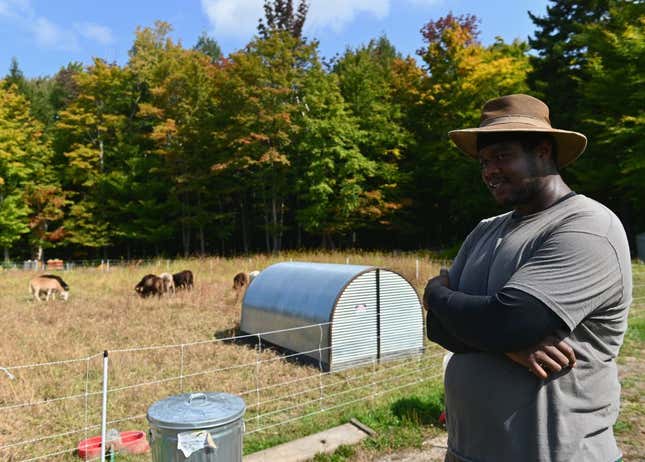
It’s a miracle that Black farmers have made it this long when you consider that for over 100 years, they’ve faced discrimination from the US Department of Agriculture and were largely excluded from federal loans and farm improvement initiatives.
But the enduring seeds of hard work and faith have finally come to bloom, as the $1.9 trillion COVID-19 relief bill includes some $5 billion provisions that will forgive debts for Black, Latino, and other farmers of color, freeing them from the bondage of financial servitude.
Farmers of color have freshman Democratic Sen. Raphael Warnock of Georgia, the first Black Senator in Stacey Abrams’ state, to thank for the initiative, as the pastor pushed for the Emergency Relief for Farmers of Color Act into the COVID-19 bill.
Warnock praised the act noting that Democrats sought to “ensure equity in our recovery efforts and address longstanding injustices that have left some communities behind for far too long” and pledged that the aid “will not only help farmers of color but will also lift up the economies of our rural communities working to recover from the economic turndown,” according to Rolling Stone
Here’s how Business Insider explains the almost century-long systematic racism Black farmers have faced.
Due to systemic racism from both private lenders and government officials, many Black farmers did not have set deed structures that allowed for properties to be passed down in whole, which created fractional ownership setups.
Sen. Debbie Stabenow of Michigan, chairwoman of the Agriculture Committee, strongly backed the effort, lauding Warnock for “coming in and and working to embrace this and get it over the line right away,” according to Rolling Stone.
In 1910, 14% of farmers in the US were Black, compared to 2% today, something that Stabenow highlighted.
“When you look at one of the very first ways that there was racial discrimination after slavery was legally abolished, it was lack of support for black farmers,” she said, adding that they “were discriminated against in terms of land ownership.”
Warnock wasn’t alone in his efforts. Just last year, Democratic Sen. Cory Booker of New Jersey introduced “The Justice for Black Farmers Act,” which allowed Black farmers to reclaim 160 acres through land grants which addressed federal agricultural racial discrimination.
“Overtly discriminatory and unjust federal policy has robbed Black families in the United States of the ability to build and pass on intergenerational wealth,” Booker said in a statement viewed by Business Insider. “When it comes to farming and agriculture, we know that there is a direct connection between discriminatory policies within the USDA [US Department of Agriculture] and the enormous land loss we have seen among Black farmers over the past century.”
This won’t fix everything but at least it’s a start.

